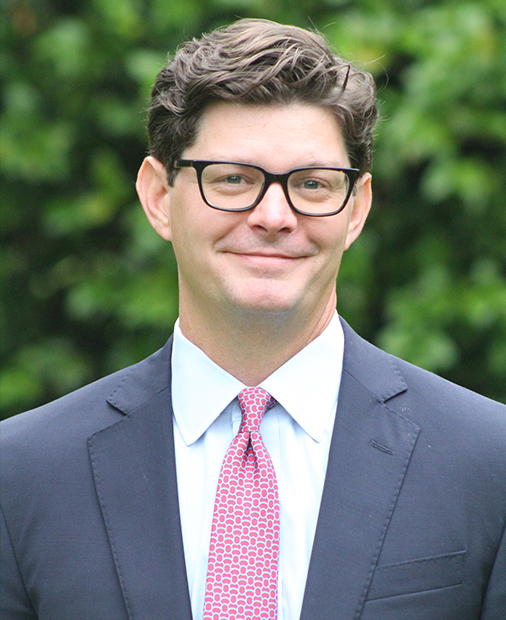Online Trademark Attorneys
Trademark Attorney Working With Clients in Savannah, GA
If you're an entrepreneur, you know that protecting your intellectual property should be high on your list when it comes to safeguarding your company. However, as a successful business owner, you also know the steps and costs of filing a trademark in the U.S. can be expensive and arduous.
This conundrum can be even more overwhelming for new business owners who want to do everything possible to minimize the price of securing trademarks. They try to handle complicated tasks like trademark registration on their own, which can be a big mistake - especially when juggling the day-to-day tasks of running a business. You may be thinking, "But what about those set-it-and-forget-it services you can find online? All you have to do is plug in your info, and you're done." Using pre-made templates for trademark filing can be tempting, but doing so can leave you with inadequate protection and hurt you in the long run.
So, what is the easiest, most cost-effective route to consider that also minimizes legal risk? The truth is, before you spend money on an online filing service, it's best to consult with a trademark attorney working with clients in Savannah, GA.
At Sausser Summers, PC, our experienced trademark attorneys can help you understand the trademark process step by step. We can even help with U.S. trademark filing, U.S. trademark responses, and U.S. trademark renewals at a price you can actually afford. That way, you can make an informed decision regarding your business without having to break the bank.
Resources
Sausser Summers, PC: Simplifying the U.S. Trademark Process
Hiring an attorney can be a daunting task, but at Sausser Summers, PC, our goal is to make the process as simple and seamless as possible for you. That's why we offer a straightforward checkout service. First, you choose your flat fee trademark service and fill out a short questionnaire. Then, we will contact you within 24 hours to discuss the details of our service. From there, one of our experienced trademark attorneys will get to work on your behalf.
Using a trademark attorney for filing in Savannah, GA, can significantly increase your chances of a successful registration. The U.S. government recommends hiring a trademark attorney to help with your application, and our team of trademark lawyers is dedicated to meeting your needs. In fact, we help ensure your application is filed correctly the first time so you can get on with your life and avoid legal risks.
At Sausser Summers, PC, we work closely with our clients to understand their needs and provide them with sound professional advice. We never offer incomplete services, such as simply filing for registration, because that would leave you open to legal risks. You can rely on us to handle your intellectual property matters, and our flat fee services can help protect your business in a simple, straightforward, and affordable way. It's really that simple.
In terms of filing a U.S. trademark, we provide an easy three-step process to protect your intellectual property:
1. You provide your trademark info to our team via an online form.
2. Our team performs a comprehensive trademark search. This search ensures that no other marks will prevent you from registering your trademark in the U.S. Once performed, we'll send you a legal opinion letter that details our findings.
3. Sausser Summers, PC, files your U.S. trademark application. We are then listed as your Attorney of Record on file. From there, we'll provide ongoing updates regarding the status of your trademark as it works through the registration process.
The bottom line? At Sausser Summers, PC, we give both new and seasoned business owners an easy, efficient, cost-effective way to protect the one asset that sets them apart from others: their name.

The bottom line?
At Sausser Summers, PC, we give both new and seasoned business owners an easy, efficient, cost-effective way to protect the one asset that sets them apart from others: their name.
Do I Really Need a Trademark Attorney for Protecting My Business in Savannah, GA?
It's not necessary to be a lawyer in order to apply for a trademark. Anyone can submit a trademark application to the U.S. Patent and Trademark Office (USPTO). However, registering a trademark involves more than just filling out a form. It's essential to conduct thorough research, accurately identify and clearly explain your trademark to ensure it receives adequate protection. And even after securing a trademark, you've got to monitor it consistently to make sure it's free from infringement.
The big takeaway here is that it's always a good idea to work with a trademark attorney to protect the intellectual property that you've worked so hard to establish. According to the Wall Street Journal, applicants are approximately 50% more likely to secure their trademark than people who file applications on their own. If your trademark application is rejected by the USPTO, you will need to revise and refile it, incurring additional filing fees. To avoid delays and extra costs, it is best to have a trademark lawyer help you get it right the first time.
Additional Benefits of Using a Trademark Attorney
Great trademark attorneys (like those you'll find at Sausser Summers, PC) will help with every step of filing and enforcing your trademark. Some additional benefits include the following:
Check to see if your proposed trademark is registered by another entity.
Conduct research to see if another business is using the trademark for which you're applying.
Provide advice and guidance on the strength of your trademark.
Draft and submit your trademark applications and application revisions.
Advice and guidance regarding trademark maintenance and protection.
Monitor the market for unauthorized use of your trademark.
Trademark enforcement to protect you against infringement.

Curious whether our trademark attorney services are right for you and your business? Contact Sausser Summer, PC, today. Let's talk about what you need, and how we can help.
What About Online Filing Services?
Online services, can provide you with basic assistance in filing your trademark. However, they will never be a legitimate substitute for an experienced trademark attorney helping clients in Savannah, GA.

Although online filing services offer a step-by-step process, they take a one-size-fits-all approach to preparing legal documents. Even their advanced service only provides basic attorney assistance in completing your paperwork and helping with minor roadblocks. Online filing services' disclaimer highlights the many limitations of its services, including the fact that communications are not protected by attorney-client privilege. In addition, online filing services cannot provide advice, explanations, opinions, recommendations, or any kind of legal guidance on possible legal rights, remedies, defenses, options, selection of forms or strategies.
In other words, online filing services can offer you the necessary forms and point you in the right direction, but they cannot customize their services to your specific needs or help you with serious complications that may arise.
For the most comprehensive trademark service and protection, it's always wise to work with highly rated trademark lawyers, like you'll find at Sausser Summers, PC.
Understanding Trademarks Over Time
Trademarks in the U.S. can last indefinitely, but did you know that clients in Savannah, GA can file a trademark online, only to lose protection in some circumstances? Trademarks differ from patents and copyrights in that they do not have an expiration date. However, to prevent the cancellation of a trademark, you must maintain it. To ensure that your trademark remains protected, you must actively use it in commerce and renew it with the USPTO every ten years.
The Lanham Act tells us that "use in commerce" is the legitimate use of a trademark in the ordinary course of trade. In other words, you cannot register a trademark solely to reserve the rights to it in the future. In most cases, a trademark must be used continuously in connection with the goods or services it is registered for.

Steps to Renew Your Trademark
Trademarks are registered with the USPTO and generally need to be renewed every ten years. However, there is one crucial exception that you should be aware of. Within the first ten years of owning a trademark, you must file for renewal between the fifth and sixth year from the date of your initial registration.
During this renewal period, you are required to submit a Section 8 declaration, a specimen that shows how the mark is being used, and pay the required fee. You can also apply for Section 15 Incontestability status, which can strengthen your trademark rights. This application, although not mandatory, can make it harder for others to challenge your ownership of the mark.
After the first renewal, which falls between the fifth and sixth year of ownership, the next renewal filing is due between the ninth and tenth year, and then every tenth year thereafter. In the ninth year you will need to file a Section 8 declaration, attesting to your use of the mark or excusable nonuse. You've also got to file a Section 9 renewal application before the end of the tenth year to keep your registration active.
It is worth noting that the USPTO provides a six-month grace period if you fail to renew your mark within the required time frame, but it is best not to rely on it. If you don't file within the grace period time limits, the USPTO will cancel and expire your mark.
By hiring trademark attorneys helping clients in Savannah, GA, you can avoid the pitfalls and mistakes that can arise and cause you to lose your rights to the mark that represents it.
Losing Your Trademark Rights Through Abandonment
In the event that you stop using your trademark and have no plans to resume using it in commerce, it may be considered abandoned by the USPTO. This could result in the loss of your protective rights to the mark. Typically, a trademark is assumed to be abandoned if it has not been used for three years. However, you may be able to refute this presumption by providing evidence that you intend to use the mark again in the future.
Losing Your Trademark Rights Through Inappropriate Licensing
In addition to trademark abandonment, you should also be wary of improper licensing. It's important to remember that once you allow someone else to use your trademark, you must keep an eye on how they use it. You should monitor the products or services that feature your trademark to ensure that they meet consumers' expectations in terms of quality. Failure to do so can lead to a "naked" trademark license and the loss of your protective trademark rights.
How to Avoid Having to Refile Your Trademark
If you're wondering how you can avoid refiling your trademark, the answer is simple: file it correctly the first time around. Filing a trademark isn't inherently difficult, but when doing so, it's very important that certain aspects are filled out accurately in your application. If any information is missing or incorrect, the trademark application may be considered "void ab initio" or void from the beginning, requiring you to file again.
To avoid this, make sure that the information you provide in the application is accurate and complete, including the ownership of the trademark. For instance, if a corporation has multiple shareholders, it should not file under the President's personal name. The rightful owner should be the one/entity that ultimately controls the trademark and the associated goods/services.
It is also important to ensure that the goods and/or services description is precise. For example, if you sell electronic products, you should not file for research and development services despite having a research and development department. The goods/services description should reflect the goods/services you offer to customers, not the departments within your business.
Additionally, providing accurate dates of first use when filing for a trademark is crucial. The USPTO requires two dates to be specified - the date of first use anywhere and the date of first use in interstate commerce. Contact our trademark law office today to learn more about having accurate dates on your filing paperwork.


What Makes an Online Trademark Attorney Great?
At Sausser Summers, PC, we often get questions about how to distinguish run-of-the-mill consultants and others from great trademark attorneys. After all - when you're looking for an attorney to file or prosecute your business trademark, you should know their qualifications. Here are three ways you can separate the proverbial wheat from the chaff when it comes to trademark attorneys.
It's crucial to seek legal advice from a licensed trademark lawyer rather than relying on advice from non-professionals like trademark consultants. The USPTO even recommends hiring an attorney to help with the trademark process. Although trademark consultants may provide advice on trademark availability or name marketability, they cannot file the trademark for you or offer legal advice. According to the Rules of Practicing in trademark cases, "Individuals who are not attorneys are not recognized to practice before the Office in trademark matters." This rule applies to individuals who assist trademark applicants.
When searching for a trademark attorney, it's important to find someone with a strong background in trademark law. Look for an attorney who specializes in this area and has significant experience handling trademark-related cases. Avoid lawyers who don't have expertise in this field, as they may not be able to provide the guidance and support you need.
Ensure your attorney provides updates throughout the trademark registration process to avoid missing deadlines, including responding to any Office actions within six months. Failure to do so can result in trademark abandonment. The USPTO will only correspond with the listed attorney of record, so make sure your attorney keeps you informed.
In summary:
- Be sure you're using a licensed trademark attorney helping clients in Savannah, GA.
- It's best to work with a trademark lawyer who has years of experience filing trademarks.
- Ensure that your trademark lawyer is willing to provide ongoing notifications relating to your trademark application process.

Trademark Attorneys Working Hard for You
Building your brand and gaining recognition for it is a significant achievement, and it's important to protect it. However, there are certain pitfalls and mistakes that can arise, causing you to lose your rights to the mark that represents it. By working with knowledgeable trademark attorneys, you can avoid these issues and file your trademark successfully.
With an A+ rating from the Better Business Bureau (BBB), Sausser Summers, PC, offers comprehensive guidance, strategic advice, and reliable representation for a variety of trademark matters. Our attorneys have years of real-world experience and, having registered countless trademarks with the USPTO, provide our clients with individualized representation when they need it most.
If you're looking for skilled, adept, and experienced counsel, look no further than our trademark law firm. Contact us today to schedule your initial consultation and learn how we can help you safeguard your brand.
Latest News in Savannah, GA
Savannah's Colonial Oil Faces $2.8M Fine, Accused of Skirting Clean Air Act
hoodline.comhttps://hoodline.com/2024/04/savannah-s-colonial-oil-faces-2-8m-fine-accused-of-skirting-clean-air-act/
Federal watchdogs are barking up Colonial Oil's tree with a hefty $2.8 million fine for clean air violatios. The Savannah-based oil bigwig, dinged by the Justice Department and Environmental Protection Agency, stands accused of fudging renewable fuel use numbers and peddling too volatile gasoline. Buyers beware, this gas was apparently contributing to smog and hitting asthmatics where it hurts.The company, which didn't peep a word when asked to comment, isn't just forking out fines. In a costly mea culpa, it's shelling out $12.2 milli...
Federal watchdogs are barking up Colonial Oil's tree with a hefty $2.8 million fine for clean air violatios. The Savannah-based oil bigwig, dinged by the Justice Department and Environmental Protection Agency, stands accused of fudging renewable fuel use numbers and peddling too volatile gasoline. Buyers beware, this gas was apparently contributing to smog and hitting asthmatics where it hurts.
The company, which didn't peep a word when asked to comment, isn't just forking out fines. In a costly mea culpa, it's shelling out $12.2 million to retire greenhouse gas credits. Sweetening the sour deal, the consent decree they inked, pending public scrutiny, may become a done deal after the regulatory bigwigs sift through a month's worth of public gab.
Getting into the grime of it, EPA hawks claim Colonial Oil left out over 100 million gallons of diesel, meant for ships that never braved the big blue, from its eco-friendly fuel use records from 2013 to 2019. The big no-no here: pretending they used the green stuff when they didn't, leading to a greenhouse gas uptick.
As if that wasn't enough heat, the oil honchos also hawked gas that had too much pep in its step, evaporation-wise, causing more smog and breathing beef for folks in the summer, according to The Current. Under the hammer, Colonial now has to nab and snuff credits to make up for their eco-slip, to the cool tune of 18,300 metric tons of CO2 snuffed out – that's like unplugging a small town or parking a fleet of cars for a year.
Mind you, despite their current mire, Colonial Group's website is all sunshine and daisies about its pioneering push into renewable diesel on the East Coast. A stark contrast to having the feds knock on their door for a cleaner act. Rules are rules, after all, and as Assistant Attorney General Todd Kim put it, "This proposed settlement will hold Colonial to the same renewable fuel requirements that all importers and producers must adhere to."
Assistant Administrator David M. Uhlmann of the EPA wasn't shy about laying it bare either, saying renewable fuels were pivotal in cutting down nasty emissions and backing up the economy with solid jobs. This settlement is another sharp reminder to fuel folks to stay in their green lane or face the costly music.
A look at other offenders this year shows this isn't a lonely path. California-based Cummins, Inc.'s wallet is $1.675 billion lighter after the biggest Clean Air Act civil penalty ever slapped. And Apache Corporation's piggy bank is down $4 million, plus a couples of million more in clean-up acts after their own faux pas with well pads, per reporting from The Current.
Baseball Game Preview: Richmond Hill Wildcats vs. Savannah Country Day Hornets
Team Reportshttps://www.maxpreps.com/news/0mr_7yGRlk2eLI_IJzar0g/baseball-game-preview-richmond-hill-wildcats-vs-savannah-country-day-hornets.htm
After three games on the road, Richmond Hill is heading back home. They will take on the Savannah Country Day Hornets at 6:00 p.m. on Wednesday. Both teams come into the game bolstered by wins in their previous matches.Last Tuesday, Richmond Hill got the win against ...
After three games on the road, Richmond Hill is heading back home. They will take on the Savannah Country Day Hornets at 6:00 p.m. on Wednesday. Both teams come into the game bolstered by wins in their previous matches.
Last Tuesday, Richmond Hill got the win against Colquitt County by a conclusive 11-1.
Meanwhile, Savannah Country Day waltzed into their contest on Monday with two straight wins... but they left with three. They had just enough and edged the Redskins out 7-6. Seven seems to be a good number for Savannah Country Day as the team scooped up a victory with the same number of runs in their previous game.
Tyler Scott was a major factor while hitting and pitching. On the mound, he tossed 1.2 innings while giving up no earned runs off one hit (he also only allowed one walk). Scott was also stellar in the batter's box, going 2-for-3 with four RBI and a triple.
Scott wasn't the only one making solid contact as five players wound up with at least one hit. One of them was Garrett Lorfano, who went 1-for-3 with a home run and two runs.
Richmond Hill has been performing incredibly well recently as they've won six of their last seven matches, which provided a massive bump to their 14-10 record this season. As for Savannah Country Day, they pushed their record up to 11-11 with that win, which was their third straight at home.
Richmond Hill suffered a grim 10-0 defeat to Savannah Country Day in their previous meeting back in February. A big factor in that loss was the dominant performance of Scott, who didn't allow a single earned run and only one hit while striking out ten over five innings pitched. Now that Richmond Hill knows the damage he can cause, will they be able to stop him this time? There's only one way to find out.
Article generated by infoSentience based on data entered on MaxPreps
Savannah trolley tour ordinance in the works, as downtown residents complain of noise pollution
Benjamin Paynehttps://www.gpb.org/news/2024/04/16/savannah-trolley-tour-ordinance-in-the-works-downtown-residents-complain-of-noise
Credit: Creative Commons / LoneStarMikeSavannah's popular trolley tours may soon sound less noisy to residents and passersby, if a proposed ordinance passes City Council muster and achieves tourism officials' goal of preventing amplified sound from spilling out onto the streets of the city's historic downtown.Adored by tourists yet loathed by many locals, the more than 100 registered trolley tour vehicles in the Hostess City would be required to use directional, noise-reducing speaker systems, under an ordinance recommendation ...
Credit: Creative Commons / LoneStarMike
Savannah's popular trolley tours may soon sound less noisy to residents and passersby, if a proposed ordinance passes City Council muster and achieves tourism officials' goal of preventing amplified sound from spilling out onto the streets of the city's historic downtown.
Adored by tourists yet loathed by many locals, the more than 100 registered trolley tour vehicles in the Hostess City would be required to use directional, noise-reducing speaker systems, under an ordinance recommendation made by the Savannah Office of Special Events, Film and Tourism.
Alternatively, trolley tour guides could speak to their passengers through in-ear devices.
The proposal was presented by Savannah City Manager Jay Melder at a Thursday workshop meeting of City Council, where he voiced support while also acknowledging the cost that such a regulation would impose on tour companies.
“I do want to note that this technology is not inexpensive for our operators, at roughly $10,000 to $12,000 a vehicle,” he said, referring to the directional speaker systems. “But I do think that pushing our industry towards these better technologies — especially when they're technologies that the industry themselves have identified — is a right next step for Council.”
One trolley tour company has already invested in “a few prototypes” of directional speakers, Melder added, which were well received by members of the Downtown Neighborhood Association who were invited to three demonstrations of the technology.
“We had about 20 people join board members to see if the speakers would be viable,” DNA president David McDonald said in a statement shared by Melder at the workshop meeting. “The consensus seemed to be that the installation of these speakers significantly reduced the volume of noise coming from inside the trolley.”
The proposed ordinance, which is still being written, would not require immediate compliance but rather set an 18-month phase-in period, by the end of which operators' entire fleets would need to use either of the two technologies.
There are approximately 110 registered trolley tour vehicles in Savannah between the three companies registered to operate in the city — Old Savannah Tours, Historic Tours of America (operating under the brand name Old Town Trolley Tours) and Gray Line Savannah — which altogether employ more than 180 trolley tour guides.
City Council members who spoke at the workshop seemed supportive of the recommended ordinance, which, according to Melder, would be ready for a vote within one month.
“I'm always going to vote for protecting the quality of life in any district,” Alderwoman Linda Wilder-Bryan said. “I'm downtown all the time, and you can really hear what the [trolley] tour guide is saying.”
“I just want to make sure that we let the industry know that we're not just targeting them,” said Alderman Detric Leggett, whose district includes almost all of downtown. “We want to look at the entire picture because there's so many different things that contribute to this noise that's going on, especially after the hours of seven, eight, nine o'clock at night.”
However, Melder shared that the Downtown Neighborhood Association communicated to him that trolley tour noise constitutes “95% of the problem.”
The proposed noise ordinance, Melder suggested, would be a reasonable compromise to what he called “drastic measures” that some downtown residents have asked for, such as reducing the number of tours that are currently allowed.
“Downtown's always been a mixed-use neighborhood,” Melder said. “And downtown is not a gated community. You come downtown to be able to enjoy the nightlife, to enjoy walkable streets, to enjoy the squares, to enjoy all of the amenities that downtown has to offer.
“So, we are not going to be able to achieve the kind of tranquil, bucolic neighborhood setting that might exist in other places in our region,” he continued. “That's not what downtown is. And it shouldn't be. And our residents shouldn't have that expectation.”
Tags: tourism tourism industry noise pollution Georgia Savannah Atlanta Macon
Secondary Content
About the author
Author
Benjamin is the Savannah-based reporter for GPB, where he covers Coastal Georgia.
Prior to coming to Savannah, he freelanced in Bellingham, Washington, for public media outlets including NPR, Marketplace, and PRX. Previously, Benjamin hosted Morning Edition for WVIK, his hometown NPR member station in Rock Island, Ill. Before that, he served a news internship with NPR member station WBEZ in Chicago.
Benjamin is a graduate of the University of Nevada-Reno's journalism master's program, and earned his undergraduate degree in journalism from Augustana College in Rock Island.
Savannah Bananas Founder Tells AGS Members How to Stand Out
JCKhttps://www.jckonline.com/editorial-article/savannah-bananas-founder/
Businesses shouldn’t just chase customers but instead should cultivate fans, keynote speaker Jesse Cole said Monday at the American Gem Society Conclave in Austin, Texas.“The future of your business is not based on how many customers you have, it’s how many fans you have,” Cole, founder of the Savannah Bananas exhibition baseball team, said in the opening keynote address. “Customers are transactional, but you want a fan for life...
Businesses shouldn’t just chase customers but instead should cultivate fans, keynote speaker Jesse Cole said Monday at the American Gem Society Conclave in Austin, Texas.
“The future of your business is not based on how many customers you have, it’s how many fans you have,” Cole, founder of the Savannah Bananas exhibition baseball team, said in the opening keynote address. “Customers are transactional, but you want a fan for life. We have 100 customers who have tattoos of our team on their arm.”
Wearing his signature bright yellow tux, Cole told AGS Conclave attendees that when he first organized the Bananas team, he set out to provide a “fans first” experience that would “wow” customers.
“We said, we are not going to be like other baseball teams, we’re going to different. We are not in the baseball business, we’re in the entertainment business.”
Starting out, Cole identified several “friction points” that can interfere with people’s enjoyment of traditional baseball games.
Fans felt games “were too long, too slow, too boring,” he said. “They complained about convenience fees and service fees added to the tickets.”
As a result, the Bananas didn’t charge any fees with its tickets. They also developed their own “Banana Ball” rules, which keep every game under two hours and incorporate dancing and audience participation events.
The team now enhances the experience by sending fans a playlist to listen to on their way to the ballpark, and about a week after the game, it sends them a free highlights video.
“Our goal is to create not just fans-first moments but ‘you wouldn’t believe’ moments,” Cole said. “What can we do that’s a little more remarkable?
“[Jewelers] are in a serious profession, but what if people think, ‘Boy, not only did I get a great necklace, but I had a great experience’? Think about what’s the typical experience and how you make your store seem unlike any jewelry store in the world.”
Cole advised the audience to look for “friction points” in their own businesses.
“We don’t focus on our competitors, we look at putting ourselves in customers’ shoes,” he said. “Walt Disney would walk his park, and go through it and look at how he can do better. He wanted to find out what’s wrong with every ride.”
The Bananas take a similar approach: Employees sit “undercover” among the fans to find out how to “eliminate friction,” said Cole.
He noted that when customers call a company, they are typically put on hold and forced to listen to “boring” music. But the Bananas have their own entertaining hold music, and people sometimes call just to listen to it, according to Cole.
He said businesses have to ask: “How do you take those pain points and make them fun, unique, and memorable?”
One example of how the Bananas answer that question occurs when games are called because of rain—employees line up with umbrellas and escort customers to their cars.
Businesses need to “experiment constantly” to succeed, said Cole.
“We’re not remembered for our failures but for our hits,” he said. “Whatever is normal, do the opposite. Normal gets normal results. Attention beats marketing 1000% of the time. People talk about things that are unique and different.
“We constantly come up with ideas and see what works and what doesn’t work. And a lot of them don’t work. You either have a success or you have story, and sometimes both.”
(Photo courtesy of the American Gem Society)
Follow JCK on Instagram: @jckmagazine Follow JCK on Twitter: @jckmagazine Follow JCK on Facebook: @jckmagazine
Disclaimer:

 Sausser Summers, PC
Sausser Summers, PC Call
us (843) 654-0078
Call
us (843) 654-0078